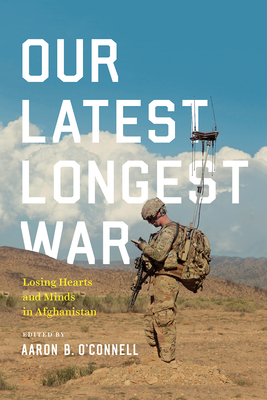Expedite your nonfiction book discovery process with Readara interviews, summaries and recommendations, Broaden your knowledge and gain insights from leading experts and scholars
In-depth, hour-long interviews with notable nonfiction authors, Gain new perspectives and ideas from the writer’s expertise and research, Valuable resource for readers and researchers
Optimize your book discovery process, Four-to eight-page summaries prepared by subject matter experts, Quickly review the book’s central messages and range of content
Books are handpicked covering a wide range of important categories and topics, Selected authors are subject experts, field professionals, or distinguished academics
Our editorial team includes books offering insights, unique views and researched-narratives in categories, Trade shows and book fairs, Book signings and in person author talks,Webinars and online events
Connect with editors and designers,Discover PR & marketing services providers, Source printers and related service providers

Our Latest Longest War: Losing Hearts and Minds in Afghanistan
History > Military - Afghan War (2001-)
- University of Chicago Press
- Hardcover
- 9780226265650
- 9.2 X 6.1 X 1.2 inches
- 1.5 pounds
- History > Military - Afghan War (2001-)
- (Single Author) Asian American
- English
Readara.com
Book Description
America's goals in Afghanistan were lofty to begin with: dismantle al Qaeda, remove the Taliban from power, remake the country into a democracy. But not only did the mission come completely unmoored from reality, the United States wasted billions of dollars, and thousands of lives were lost. Our Latest Longest War is a chronicle of how, why, and in what ways the war in Afghanistan failed. Edited by historian and Marine lieutenant colonel Aaron B. O'Connell, the essays collected here represent nine different perspectives on the war--all from veterans of the conflict, both American and Afghan. Together, they paint a picture of a war in which problems of culture and an unbridgeable rural-urban divide derailed nearly every field of endeavor. The authors also draw troubling parallels to the Vietnam War, arguing that deep-running ideological currents in American life explain why the US government has repeatedly used armed nation-building to try to transform failing states into modern, liberal democracies. In Afghanistan, as in Vietnam, this created a dramatic mismatch of means and ends that neither money, technology, nor the force of arms could overcome.
The war in Afghanistan has been the longest in US history, and in many ways, the most confounding. Few who fought in it think it has been worthwhile. These are difficult topics for any American or Afghan to consider, especially those who lost friends or family in it. This sobering history--written by the very people who have been fighting the war--is impossible to ignore.
Author Bio
Aaron O'Connell joined UT's History Department from Washington D.C., where he served in the Obama Administration as Director for Defense Policy & Strategy on the National Security Council staff. Prior to serving in government, Dr. O’Connell taught military history at the U.S. Naval Academy in Annapolis, Maryland.
In addition to his academic career, Dr. O’Connell is also a Colonel in the U.S. Marine Corps Reserve, and in that capacity, he has served as a Special Advisor to the Chairman of the Joint Chiefs of Staff in the Pentagon, to the Commander of U.S. Pacific Command in Hawaii, and to the ISAF Commander in Afghanistan. Dr. O’Connell holds a B.A. from Trinity College in Hartford Connecticut, an M.A. in American Literature from Indiana University, an M.A. in American Studies from Yale University, and a Ph.D. in American History from Yale University.
When not reading or writing, he spends far too much time practicing the guitar.
Research Interests
Dr. O’Connell’s scholarly interests span three inter-related fields: 20th century military history, U.S. foreign affairs, and the military's effects on contemporary U.S. culture and society. He teaches courses in military history, U.S. foreign policy, terrorism and insurgencies, and the U.S.’s role in the world.
Source: The University of Texas at Austin
Community reviews
No Community reviews


